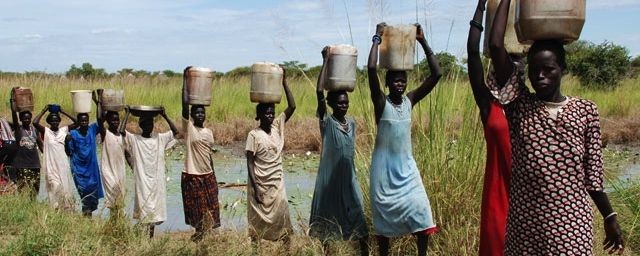The conflict in South Sudan risks reversing gains in food security that the country had made over the last year, according to the United Nations Food and Agriculture Organization (FAO) and the World Food Programme (WFP).
The two agencies said on Friday that when conflict erupted in December 2013, South Sudan’s food security outlook was the best it had been in five years, but the consequences of the conflict threaten to undo the country’s progress toward food security, and are likely to impact even parts of South Sudan not directly affected by fighting.
FAO and WFP say the crisis has led to widespread population displacement, loss of food stocks and disruption to trade and migration routes that are pushing millions more into hunger.
“Before mid-December, there was every indication that South Sudan had taken a step forward on food security, but the crisis is taking the country three steps backward instead,” said WFP Country Director Chris Nikoi. “Displacements caused by the conflict have left many people needing urgent food assistance.”
The states most affected by the conflict, namely Jonglei, Upper Nile and Unity, were also the most food insecure prior to the conflict, the agencies said. Compared to the rest of the country, those three states had higher levels of severe food insecurity, the highest cereal deficits in the country and very high dependency on markets for staple food.
“The livelihood systems in these states are diversified, with crops contributing only a portion of annual food needs,” said Dr. Sue Lautze, FAO’s Head of Office in South Sudan. “What is worrying now is the impact of the conflict on not only crops but also livestock, fishing and trading,” Lautze added.
In a new technical report, experts from the two agencies have warned that because of the ongoing crisis, an additional two million people or more are likely to experience significant food scarcity in 2014. The number of people in “crisis” and “emergency” food security conditions is estimated to have more than tripled.
More than one million people are now estimated to be in “emergency” food security phase as opposed to none prior to the conflict.




